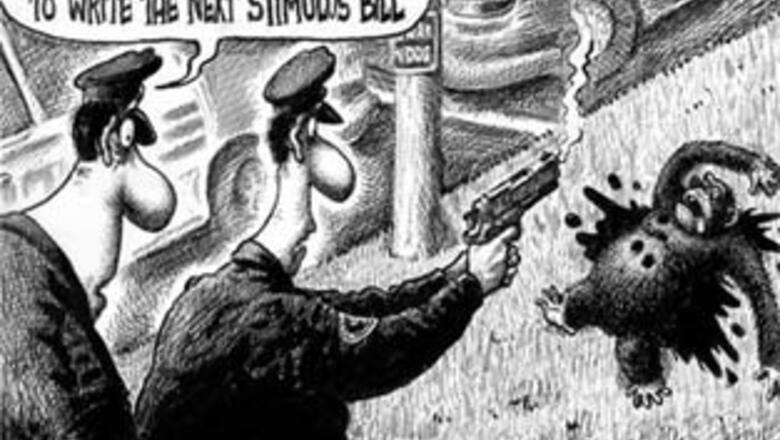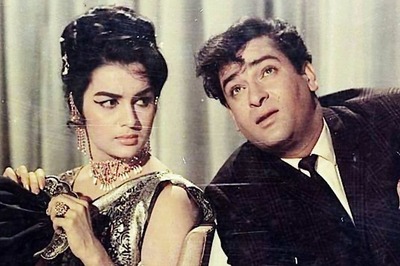
views
New York: The popular New York Post is faced with angry demands for its closure after publishing a cartoon showing policemen shooting a chimpanzee, an action that has triggered a heated racism debate and offended African Americans.
Hundreds of demonstrators on Thursday gathered outside the headquarters of News Corp., which owns the newspaper, and shouted "Yes we can, shut it down".
"They thought we were chimpanzees. They will find out we are lions," said black civil rights leader Al Sharpton, who called the cartoon a racial reference to President Barack Obama.
On Wednesday, Sharpton called the cartoon "troubling" in view of the US' historic racist attacks comparing African Americans to monkeys.
A few hours later, New York Post Editor-in-Chief Col Allen printed a response defending the cartoon as "a clear parody of current news events" and branded Sharpton "nothing more than a publicity opportunist".
The cartoon depicts two police officers, one with a smoking gun, near the chimp's bullet-pierced body. "They'll have to find someone else to write the next stimulus bill," one officer says.
The cartoon was a take on an incident in Connecticut on Monday in which an officer shot dead a chimpanzee that had seriously injured a woman, but it was the reference to Obama's $787 billion stimulus plan that the critics found offensive.
Dozens of cartoonists weighed in on dailycartoonist.com. Some said it was a simpleton move to use the tired metaphor of a monkey to make fun of something - no matter what it was.
One poster wrote "Wha...?", pointing out that Obama didn't write the stimulus package, lawmakers did.
On the cartoon "danger scale" of 1 to 10, the chimp cartoon scored a 9, Dilbert creator Scott Adams told CNN. Adams liked the cartoon, but judging its overall worthiness is difficult - a gauge best measured by an audience, not the cartoonist, he said.
"Any cartoon has to be a little bit dangerous, and he's definitely achieved that," he said. "You have to perceive that the cartoonist is in personal danger or there's something dangerous about it, that at the cartoonist's next cocktail party, half of the people there are going to want to poison his drink."
If there is any apology due, it shouldn't come from the cartoonist, insisted Ted Rall, the president of the Association of American Editorial Cartoonists.
An editor should object if there is a strong possibility that a cartoon will not resonate the way the cartoonist wanted, he said.
Syndicated political cartoonist Chip Bok didn't find the Post cartoon racist, but he said it probably was in bad taste.



















Comments
0 comment